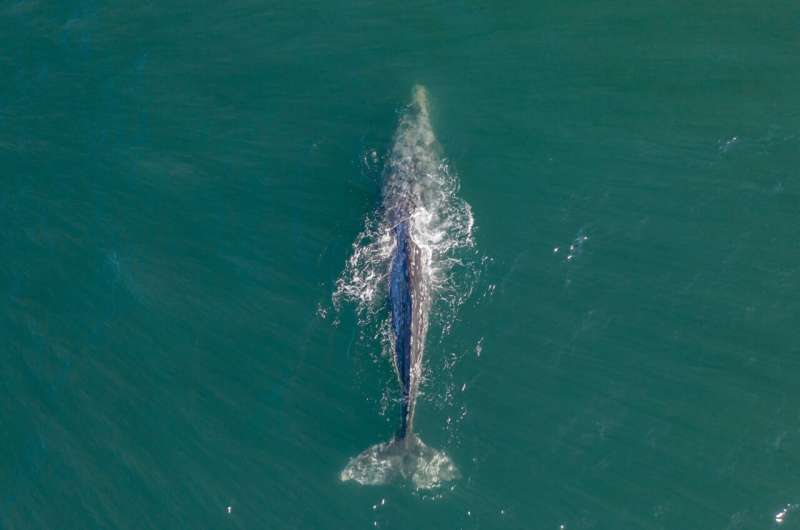Bones of whale extinct for 300 years that were once stored in North Carolina couple’s garage are headed for Smithsonian

A couple walking on a North Carolina beach made a rare discovery that could help researchers solve mysteries from long ago.
Rita and Tom McCabe were used to finding shells during their walks on West Onslow Beach in the 1970s—but then they started stumbling upon large bones. After years of keeping the remains in their garage, the couple gave them to the University of North Carolina, Wilmington.
It turns out, the bones belonged to a whale species extinct for about 300 years.
“We grew very excited because there was very little scientific information on the North Atlantic gray whale population because it was no longer here,” David Webster, a longtime professor and senior associate dean for the College of Arts and Sciences at UNCW, said in a news release.
The whale specimen—believed to be the “most complete” of its kind—found a new home at UNCW, where it remained for decades.
Now officials say the bones began a new chapter at the Smithsonian in late 2021.
Webster said he thinks the couple, who have both since died, would find joy in knowing their collection could continue to help researchers.
“I’m sure they are just tickled pink,” he said in the news release. “They are probably saying, ‘Can you believe it? We made it big time.'”
The Smithsonian said it hopes the donated specimen will help offer clues about North Atlantic gray whales and what life was like hundreds of years ago.
“Specimens like these, tie to place and time,” Nicholas Pyenson, curator of fossil marine mammals at the National Museum of Natural History, said in a Smithsonian Ocean article. “They tell us how the world once was.”
The museum will have the bones on display, according to UNCW. But getting the massive load more than 300 miles from North Carolina to Washington, D.C., was no easy feat.
The bones were loaded onto a van that “looked more like a minibus” and were cushioned with “layers and layers of bubble wrap,” David Bohaska, a vertebrate paleontology collections specialist, told Smithsonian Ocean.
The journey was reminiscent of the time the couple first dropped the bones off at UNCW.
“They drove a small Chevy S10 pickup truck to campus, and they had bones hanging out all over the place,” Webster said in the news release for the school, which today has about 18,000 students.
After initially thinking the specimen was a humpback whale, researchers said closer examination revealed a more rare surprise. The bones have stains that helped them determine where the animal may have been.
“UNCW researchers discovered through radiocarbon tests that the bones are hundreds of years old and probably washed ashore after the young whale died of natural causes during a migration period,” the college said. “They theorize that the carcass floated into the New River Inlet and ended up in the nearby salt marshes.”
The remains, found along West Onslow Beach near the Camp Lejeune military base, also have marks that indicate Native Americans may have butchered the whale after it died, UNCW professor David La Vere said in the news release.
North Atlantic gray whales weighed up to 90,000 pounds and were found in the northern part of the world before they were last seen in the 1700s. Though the exact cause of their extinction isn’t known, their habitats near the shore made them vulnerable to whaling, the Smithsonian Ocean website said.
Massive whale beaches itself in northern France
2022 Miami Herald. Distributed by Tribune Content Agency, LLC.
Citation:
Bones of whale extinct for 300 years that were once stored in North Carolina couple’s garage are headed for Smithsonian (2022, January 12)
retrieved 12 January 2022
from https://phys.org/news/2022-01-bones-whale-extinct-years-north.html
This document is subject to copyright. Apart from any fair dealing for the purpose of private study or research, no
part may be reproduced without the written permission. The content is provided for information purposes only.
For all the latest Science News Click Here
For the latest news and updates, follow us on Google News.

